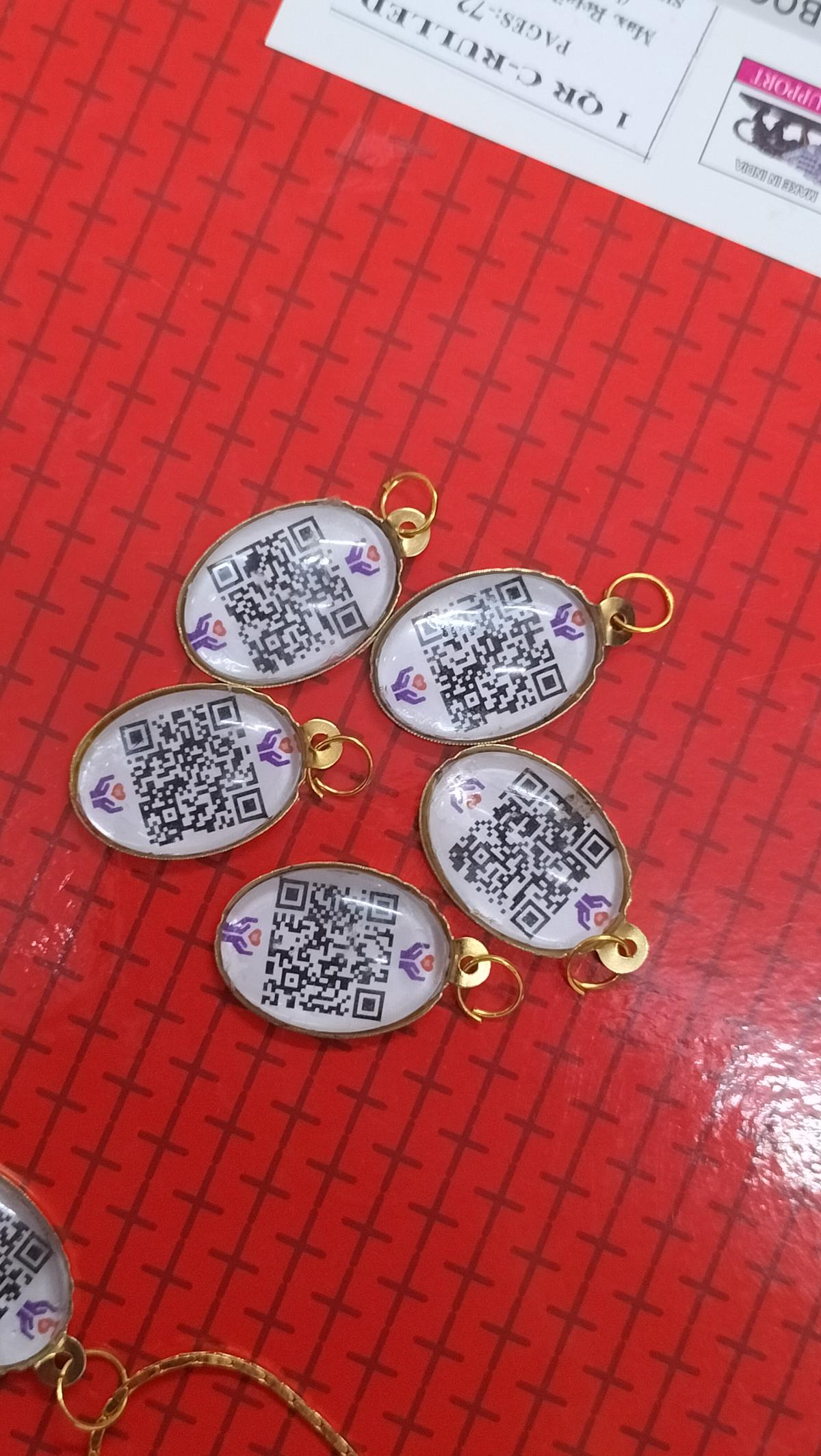Akshay with a person wearing the locket
| Photo Credit: Special arrangement
Giving wearable technology a new, helpful twist, Mumbai-based date engineer Akshay Ridlan has designed pendants with scannable QR codes. Named Project Chetna the pendants are intended to ensure the safety of the elderly and those with special needs.
Project Chetna leverages cutting-edge QR technology to create wearable pendants that contain crucial personal, medical, and emergency information for individuals who may require assistance.
According to Akshay Project Chetna is not just about creating a product, it is also about fostering awareness and compassion within communities. He and his team want to raise awareness about the solution, with the goal of reaching as many families.

The lockets
The inspiration behind Project Chetna is personal. Akshay recalls a heart-wrenching incident where a close friend’s father, diagnosed with dementia, went missing, leaving their family in turmoil. Akshay adds, “When my college professor began to experience memory loss, I started emphasising on the importance of providing timely support to those in need. Every year close to one crore children go missing in India. These are enough reasons for me to decide on making pendants with QR tag.”
This is not the first time Akhay made QR-based pendants. Earlier this year he introduced QR code tags for street dogs for the ease of feeders to track them.
Lockdown and digitalisation gave this post-graduate in Information Technology the idea of QR (Quick Response) codes that can be accessed on the mobile phone. “From making payments to accessing menus, everyone was scanning codes with their phones, so I first made the QR tags for pets and decided to design something similar for humans, especially the aged and those with special needs,” says Akshay.
This time he has added an extra feature to these lockets. When scanned the registered family members gets a notification of the locket being scanned along with the IP address of the scanner.
Explaining more Akshay says, “these pendants are designed to be a lifeline in times of crisis. When scanned, they reveal vital personal details, medical history, and emergency contact information, streamlining the process of reuniting missing individuals with their families.” The idea is to build a ‘Surakshit Bharat’ (Safe India), he adds.
For now Askhay is only charging the making cost of the lockets, ₹ 250. The QR-coded oval-shaped lockets, not bigger than an inch, are encased in a metal frame.
Highlights
- Rapid Identification: QR tags enable swift identification of the wearer, allowing immediate access to their critical information like address, medical need and contact person.
- Comprehensive data: These pendants house personal, medical, and emergency information, ensuring that first responders and good samaritans have all the necessary details to provide assistance.
- User-Friendly: Scanning a QR code is easy, making it accessible to a wide range of individuals, including those with varying technological capabilities.